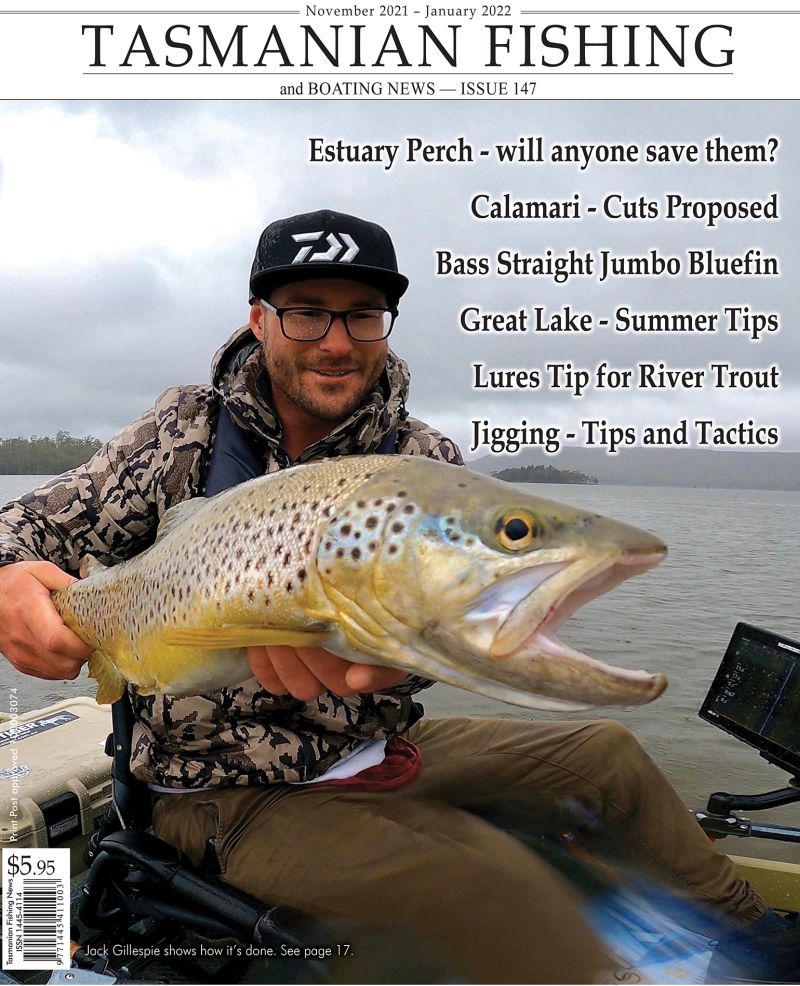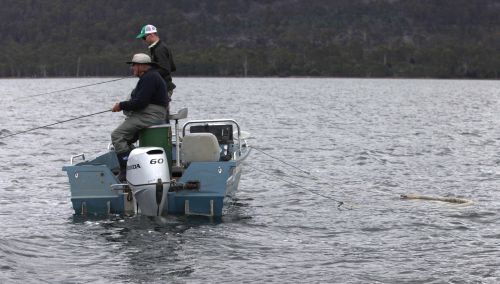Buying a boat - Don't have a barbeque
Hadley Deegan has been boating for virtually all of his (almost 40) years. From a toddler to taking over the Family Business (Deegan Marine) Hadley has spent thousands of hours in boats. From fishing and racing to selling boats he has done it all. So TFBN thought who better to ask about advice on buying a boat than Hadley.
Whilst this is skewed a little in regard to new boats it applies equally to used boats.
What is the best advice about buying a boat?
Don't go to a barbeque and ask your nine mates "What sort of boat should I buy?'. You will get nine different answers, from nine different experts who all use "their" boat for something different to what you will want. They will all try and be helpful, but you do need to figure out a fair bit yourself. Take on board what they say, but try and distil what is relevant for you. By the time you have owned two or three boats it will be much easier deciding on a boat.
You will probably have to compromise. As all boat owners know - every boat is a compromise in one area or another. So my best piece of advice is "Work out what you think you want to do 80% of the time and select your boat to do that.'
If you want to troll for trout as your primary use, you will be looking at quite a different boat than one you would use to take the kids water skiing. Bottom fishing for flathead, or estuary fishing will also be vastly different than travelling large distances offshore for deep sea or game fish species.
Try and narrow down the options with a few questions:
- How many people do you want to take in your boat? Forget about the rare occasion and focus on the 80% rule.
- What tow vehicle do you have? Is this going to be the tow vehicle? This will affect the size and material (ie: alloy or fibreglass etc) of boat to be considered as towing mass must be considered in regard to the vehicle and legal limits.
- What will the primary usage of the boat, and the core usage? Tasmanians probably use their boats for a bigger range of activities than anywhere else in Australia. Consequently we work hard to have boats that suit. Sometimes people do want to fish for trout and in estuaries, then tow a ski biscuit, skier and catch some flathead as well.
- Budget. This is, of course, important and especially so with people buying their first boat. It seems once people have owned a boat for a few years, and used it regularly, their love of boating certainly increases and the boat becomes a must have item.
- Alloy or Fibreglass? This has been a long standing question and quite a debated topic. I don't know there is a right or wrong answer to this. Alloy has typically been a more popular choice due to ease of maintenance, durability, lighter weight and handling at ramps and shores with few facilities. However we have seen some major improvements made to boating facilities by Marine and Safety Tasmania over the last ten years. This has made boating easier for all, and particularly for families and the less experienced. For years a boat had to be beached when loading and unloading at the ramp. Now we have some super pontoons and jetties and with excellent ramps, and with better trailers launching, and caring for your boat is much easier. While typically a heavier deeper v fibreglass boat will ride more comfortably than a more moderate vee lighter alloy boat there are some exceptions, some of the slightly heavier and stronger constructed plate alloy boats can now deliver exceptional performance and ride comfort. Each will have its benefits or compromises.
- Polyethylene is another alternative that is becoming more widely known and accepted. It provides a tough low maintenance alternative but is heavier than alloy and doesn't have the level of finish you will see in a fibreglass boat. As you can see there are many options available and each will have its appeal depending on usage and of course the individual. The decision now is really determined by what features, layout and hull design appeals and best suits your needs and style of boating or fishing, after also considering limitations if any due to towing, storage etc.
Once we have gone through the basics we can try and narrow it down to something that suits. Boaters are a lot better educated nowadays than they were ten years ago, and this often helps in speeding up the process of choosing the right boat. It is like the barbeque boys sometimes though and it can be confusing. Finding the right dealer for you is often the best way to go, and I will talk about that later.
For quite a few years the national average was a boat of 4.5 to 5 metres. For runabouts and general use it is about the same in Tasmania however we have seen the average size increase over the last few years. This has been influenced with more boaters travelling larger distances and further offshore in pursuit of game fish and deep sea species. I believe someone's first boat should not be too big. People should be able to comfortably handle their boat out of into and in the water. A lot can be learned in smaller boats and then the step up is much smoother.
Choosing an outboard
A significant change in recent times has been outboard technology. We have several different technologies from basic two stroke to direct injection two stroke and four stroke engines. All these range in price enormously with small two strokes still popular at the budget end under about 30 horsepower. But with many people becoming increasingly environmentally conscious they have embraced the newer low emission technology. Fuel economy on larger offshore boats travelling bigger distances has also made these outboards a more popular choice. As many would know this is a more expensive option but one that needs to be carefully considered. This new technology is extraordinarily quiet, economical and virtually pollution free. Fumes from new generation outboards are a thing of the past.
Is a boat a good investment?
Unlike many other toys or motor vehicles, a well looked after boat can be quite a good investment. So apart from giving you an enormous amount of pleasure they need not loose massive value. This is still evident today as many older boats if maintained and looked after are in demand and retain their value well. It is not unusual over several years if a boat is serviced properly and maintained well for its price to be, fully or, close to, recovered when buying a new boat. There is a lot of value in a good used boat. So look after it well.
Don't skimp on the trailer
Remember that your boat trailer is a very important component of the complete package. It needs to safely transport your boat possibly from one end of the state to other and anywhere in between, sometimes on rough roads. A good trailer will make towing, launching and retrieving your boat easier and safer. Many people want a drive on" trailer typically with larger boats and some are happy to "winch" and their needs in a trailer can be different. It does depend on the person, ramp and conditions. Take the dealer's advice on getting the best trailer, but do not" compromise.
Propellers
The importance of the correct propeller for your boat can not be overstated. This is where a dealer is most important. It is especially notable in boats with low or marginal horsepower. An example a boat that performs well with one or two people in saltwater can be hugely different at 1000 metres (Central Highlands) in freshwater. Add an extra person and you might think there is something wrong with the motor. Why? Because there is around a 10% drop in performance at 1000 metres of altitude. Add another 7-10% because freshwater is less buoyant and you can see why you suddenly have a different boat. A good dealer will understand this and make sure this is considered when rigging the boat. Your dealer may have an alternative to try if necessary, and perhaps even suggest you have a couple of props. This is not a sales pitch, but a suggestion to get the best from your boat. You might also benefit from a different prop for trolling, skiing, tubing, knee or wake boarding.
Buy a dealer
This is, in my opinion number one. Find a dealer you like, and can trust.
A good dealer knows they will need to look after the initial sale, but then also give solid after sales service as well.
The value of looking after a boat buyer might be several boats over many, many years and if the initial deal is done poorly, they may never see you again.
Good dealers will take more than enough time to ensure you are getting a boat that suits and to make sure you are well equipped to enjoy your new investment.
Find a dealer who will take you for a test drive. You wouldn't buy a car without a test drive, so don't buy a boat without one.
Unlike cars, a boat can be setup with a myriad of hulls, motors, fish finders and accessories, a good dealer will get this to suit you.
Chances are after you buy your dream boat you will call on your dealer quite a lot for different reasons. It might just be for a service, warranty, or it might be for advice, or accessories. If you have a good relationship with them boating will be smooth and easy.
Hadley Deegan - Dealer Principal, Deegan Marine, Ulverstone.



